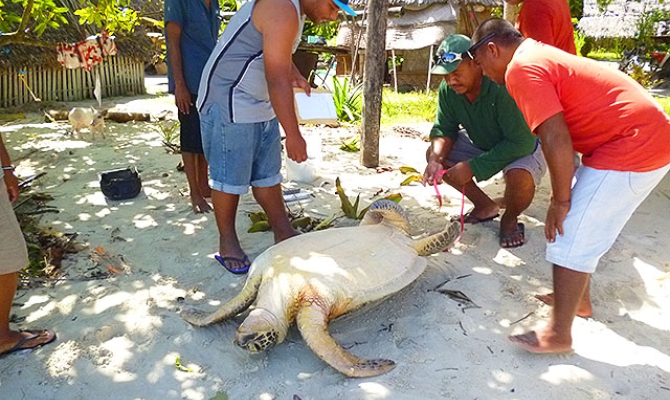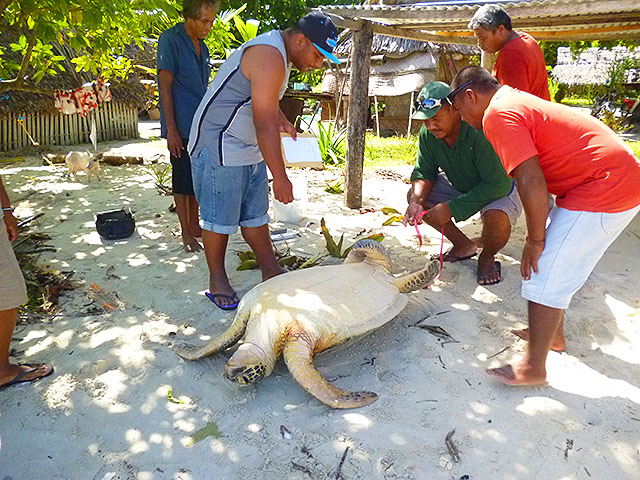
Climate Change Resilience
A team from the Ministry of Environment, Lands and Agricultural Development (MELAD), University of Tasmania and SPREP visited the island of Abaiang to conduct Ecosystem based Adaptation (EbA) in selected villages as part of the SPREP-USAID project supporting climate change adaptation in the outer islands of Kiribati.
In one of the demonstration sites, Taneau, a village located south of Abaiang, a green turtle (Chelonia mydas) with a total curve carapace length of 92.9 cm was caught by the locals to harvest the meat. Turtle meat is a delicacy in Kiribati just as it is in many parts of the world.
According to SPREP Turtle Database Officer, Ms Catherine Siota,"Direct harvest and illegal poaching of eggs and adults of all species is a major problem in the Pacific island countries."

To address some of these challenges, a study tour will be held in Vanuatu next month to raise awareness of turtle monitors from Kiribati, Fiji and Solomon Islands,. Lessons learned from Tasiriki community in Vanuatu, in eco-tourism approaches and the conservation of turtles in local communities will be shared.
The green turtle is very common in all islands of Kiribati with size ranging from 15cm to 1m in length and these turtles are often caught either by spearing or hooking. In this particular incidence, the turtle was captured by hooking.
The arrival of the project team at the village of Taneau was timely, and MELAD staff were able to convince the villagers to release the turtle, which was subsequently tagged and released.
In one of the demonstration sites, Taneau, a village located south of Abaiang, a green turtle (Chelonia mydas) with a total curve carapace length of 92.9 cm was caught by the locals to harvest the meat. Turtle meat is a delicacy in Kiribati just as it is in many parts of the world.
According to SPREP Turtle Database Officer, Ms Catherine Siota,"Direct harvest and illegal poaching of eggs and adults of all species is a major problem in the Pacific island countries."

The green turtle is very common in all islands of Kiribati with size ranging from 15cm to 1m in length and these turtles are often caught either by spearing or hooking. In this particular incidence, the turtle was captured by hooking.
The arrival of the project team at the village of Taneau was timely, and MELAD staff were able to convince the villagers to release the turtle, which was subsequently tagged and released.
For more information please contact [email protected]